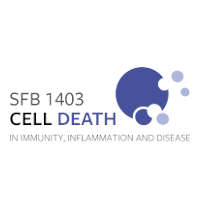Long-lived macrophage reprogramming drives spike protein-mediated inflammasome activation in COVID-19
Abstract
nnate immunity triggers responsible for viral control or hyperinflammation in COVID-19 are largely unknown. Here we show that the SARS-CoV-2 spike protein (S-protein) primes inflammasome formation and release of mature interleukin-1β (IL-1β) in macrophages derived from COVID-19 patients but not in macrophages from healthy SARS-CoV-2 naïve individuals. Furthermore, longitudinal analyses reveal robust S-protein-driven inflammasome activation in macrophages isolated from convalescent COVID-19 patients, which correlates with distinct epigenetic and gene expression signatures suggesting innate immune memory after recovery from COVID-19. Importantly, we show that S-protein-driven IL-1β secretion from patient-derived macrophages requires non-specific monocyte pre-activation in vivo to trigger NLRP3-inflammasome signaling. Our findings reveal that SARS-CoV-2 infection causes profound and long-lived reprogramming of macrophages resulting in augmented immunogenicity of the SARS-CoV-2 S-protein, a major vaccine antigen and potent driver of adaptive and innate immune signaling.
Read more at EMBO Molecluar Medicine e14150
